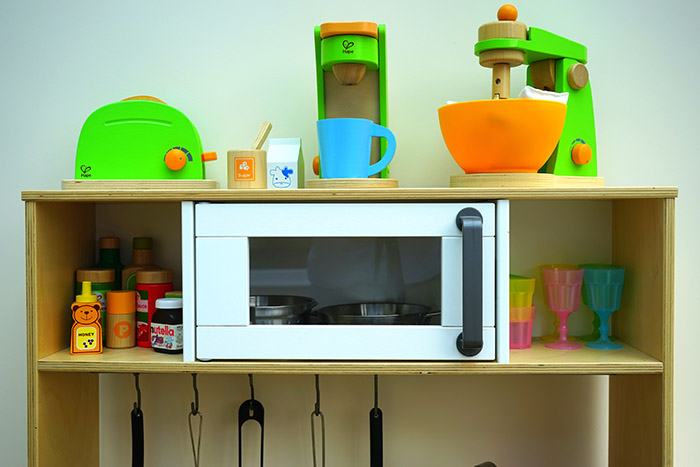Signs that Your Microwave is on its Last Legs
 If you’re an appliance owner, you know the joys and conveniences that modern technology can bring to your life. Microwaves, in particular, have become an essential tool in many kitchens. However, like any other home appliance, microwaves have a limited lifespan, and over time, they can begin to show signs of wear and tear.
If you’re an appliance owner, you know the joys and conveniences that modern technology can bring to your life. Microwaves, in particular, have become an essential tool in many kitchens. However, like any other home appliance, microwaves have a limited lifespan, and over time, they can begin to show signs of wear and tear.
Here at Diamond Appliance Repair, where we offer expert microwave repair in Kansas City & St. Louis, we know a thing or two about microwaves and have seen units at all stages in the microwave lifespan. We can tell when a microwave has more life left and when it’s time to say goodbye. In this blog post, we outline some of the common signals that your microwave might be on its last legs.
How Microwaves Work
Microwaves are made up of several key components. The magnetron, which is typically located behind the control panel, generates the microwaves and subsequently the heat. The waveguide directs the microwaves to the food. Magnetrons work by using the interaction between the magnetic field and electrons to create high-frequency electromagnetic waves. These waves are then directed into the microwave oven and absorbed by the water molecules in the food. The absorbed energy causes the water molecules to generate heat and cook the food. This is why microwaves are particularly good at reheating and cooking foods that contain a lot of water molecules, such as soups and vegetables.
The turntable rotates the food to ensure even heating, and the control panel allows you to choose the cooking time and power level.
Over time, these components can wear out or malfunction, leading to problems with your microwave’s performance. Some of the common signs that your microwave may need repair or replacement are detailed in the following sections.
It’s Making Unusual Noises
Microwaves that are still in good working order generally run quietly. However, if you notice that your microwave is making strange, unfamiliar sounds, it could be a sign that something is wrong. For instance, a grinding sound could indicate that an internal component is damaged.
The Door Doesn’t Close Properly
Microwaves rely on a door safety switch to prevent accidental leaks of electromagnetic radiation. If your microwave door doesn’t close properly, it could mean that the safety switch is malfunctioning, which poses a significant safety risk.
The Controls Are Not Responding
If your microwave doesn’t respond to your commands, it could be a sign that the control panel is malfunctioning. This issue can be caused by an electrical problem or internal damage.
It’s Taking Longer Than Usual to Heat Your Food
Microwaves are designed to heat food quickly and efficiently. If you find that your microwave is taking longer than usual to heat your food, it could indicate that the magnetron is failing. The magnetron is a part of the microwave that generates heat, and it often fails at the end of the microwave’s lifespan.
The Microwave Is Emitting Strange Smells
When a microwave is in good working order, it should not emit any odd smells. However, if you notice a burning, electrical, or metallic odor, it could be a sign that the internal components are damaged or overheating.
It’s Over 10 Years Old
Microwaves are not designed to last forever, and the average lifespan of a microwave is approximately 10 years. If your microwave is over a decade old, it may be time to replace it, even if it seems to be working adequately.
The Importance of Professional Microwave Repair
While microwaves generally contain harmless components, there are a few materials inside that can pose a danger to human health. One of the most significant concerns is the presence of beryllium oxide in the magnetron, a material used to help dissipate heat. When beryllium oxide is heated or disturbed, it can release toxic beryllium dust or fumes, which can cause a range of respiratory disorders, including chronic beryllium disease. However, as long as the microwave is properly sealed, the risk of exposure to beryllium is minimal. It’s always important to follow the manufacturer’s instructions for safe use and disposal of old appliances.
If you’ve noticed any of these signs, it’s important to get your microwave checked out by an experienced appliance repair specialist. It can be tempting to ignore these problems, but doing so can put your safety at risk and may lead to more extensive damage. Repairing your microwave is often cheaper than replacing it, but if your appliance is on its last legs, it might be time to invest in a new device.
When it comes to appliance repair, it’s crucial to choose a reputable service provider. If you’re in the Kansas City or St. Louis area, be sure to consider Diamond Appliance Repair for all of your repair and maintenance needs. Our team of skilled technicians is passionate about helping customers keep their appliances working like new. Contact us today to learn more!
By Jeff Russel, Owner of Diamond Factory Appliance
Jeff Russel is serving the greater St. Louis and Kansas City areas. Diamond Appliance provides efficient and effective service for all your appliance repair needs. Our knowledgeable technicians are trained to diagnose and fix any type of problem affecting major appliances quickly, reliably, and cost-effectively. We work hard to ensure customer satisfaction and their many positive reviews demonstrate the quality of our services.




